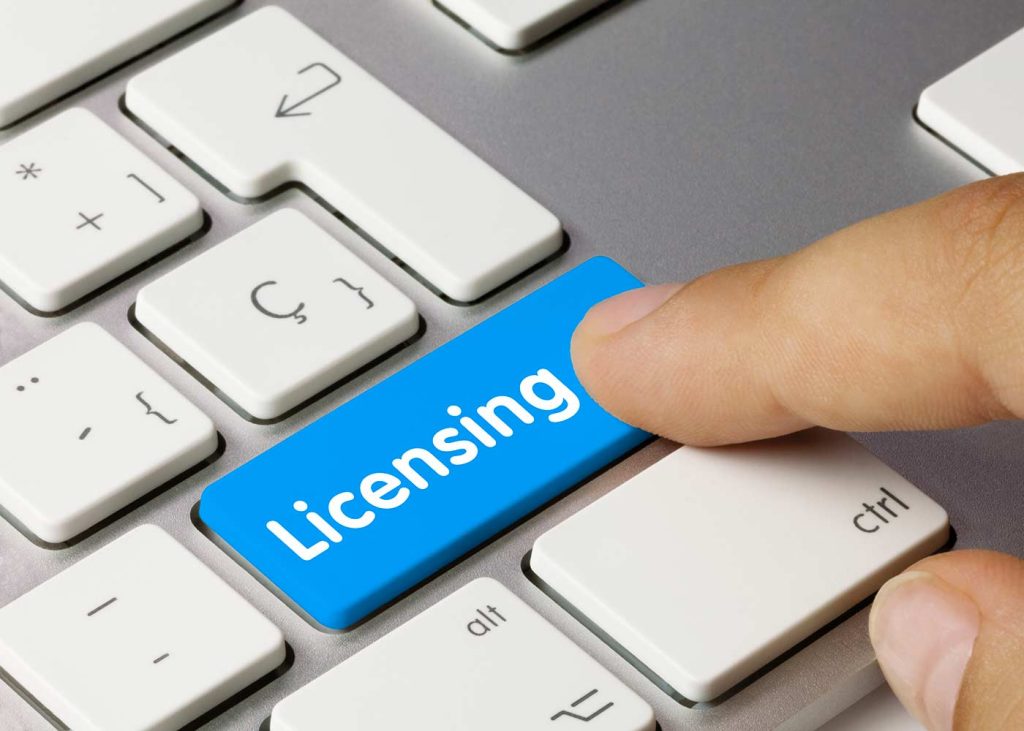Why Are Licensing Agreements So Important to Copyright Holders?
Copyright gives the holder exclusive rights to copy, reproduce, display, perform, or make derivative items from your original work. As the creator of original work, you control what, if anything, happens to it. If someone uses your work in one of these ways without your permission, it can violate your copyright. It can also mean that you are not receiving compensation for your hard work.
Many people ask us why it is important to use licensing agreements when someone is interested in using their artistic work? Licensing agreements act as “permission” to utilize your work. It is an opportunity for you, the creator, to define how someone may do so and the compensation they must pay.
Licensing agreements allow artists, photographers, videographers, graphic designers, clothing designers, and other creative professionals to negotiate various essential elements.
Most licensing agreements will cover:
- Exclusivity
- The scope of use
- The duration of use
- Compensation
Let’s look at each individual element.
Exclusivity
You will have to decide if the license you give is exclusive or non-exclusive. An exclusive license means the party to the agreement will be the only one who gets to use your photo, design, or painting.
A non-exclusive license grants someone the right to use your work but also allows you to give licenses to others as well.
Scope of Use
The scope generally addresses how the licensee can use your design or work. As the licensor, you might want a narrow, specific, well-defined scope of use. A licensee might want more general terms of the scope of use. It is essential to understand what your work is being used for and ensure the scope is clear to both parties. For example, are you limiting the use to posters, t-shirts or magazine ads? Are you allowing them to use for any purpose they choose? You need to specify the scope of use consistent with your intentions.
Duration of Use
How long can the licensee use your work? Forever? A month? Two years?
Remember, you are giving permission to use your designs, and you can decide how long you want that permission to last.
Compensation
Your compensation might be the most critical part of any licensing agreement. After all, you want to get paid for your work. The terms of compensation for any licensing agreement can vary. You might receive a one-time payment for the rights to your work. You might elect a compensation structure based directly on the different ways your work gets used. You can even have a combination of compensation terms that include a lump sum licensing fee and a “royalty” structure that allows you to earn additional payments based on units produced, a revenue share or other structure.
Negotiating Your Licensing Agreement
The terms are at your discretion when it comes to your licensing agreement. It helps to have lawyers like our US Copyright Attorneys at Sanders Law Group protecting your rights, interests, and goals.
Most licensing agreements contain specific terms of exclusivity, scope, duration, and compensation, sometimes in complex arrangements. Make sure you understand the rights you are granting to the licensee and that you are receiving appropriate payment for your work.
Remember, if someone violates the terms of a licensing agreement, you might be able to file a claim for copyright infringement and/or breach of contract.
Call Sanders Law Group for Licensing Agreements
If you are a creative professional considering a licensing agreement, call our US Copyright Attorneys at Sanders Law Group. We represent creative artists, including:
- Videographers
- Screenwriters
- Photographers
- Graphic designers
- Logo designers
- Artists
- Clothing designers
- and others
Call us today at 888-348-3090 to discuss your creative licensing needs with our copyright attorneys.



